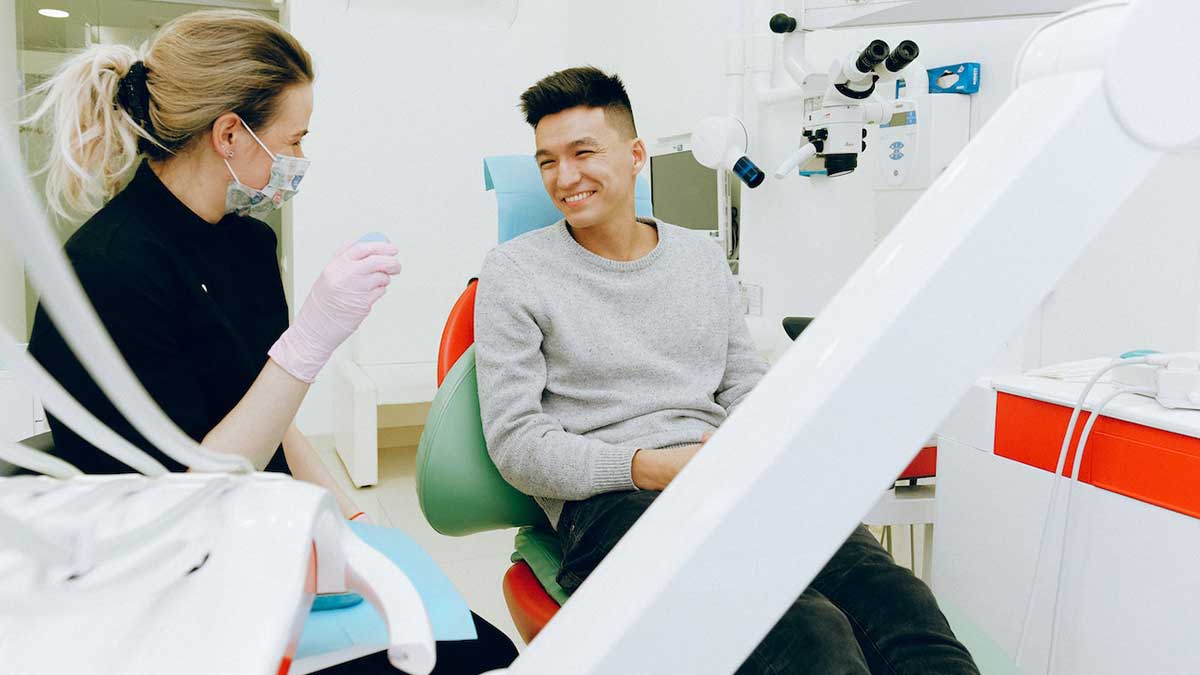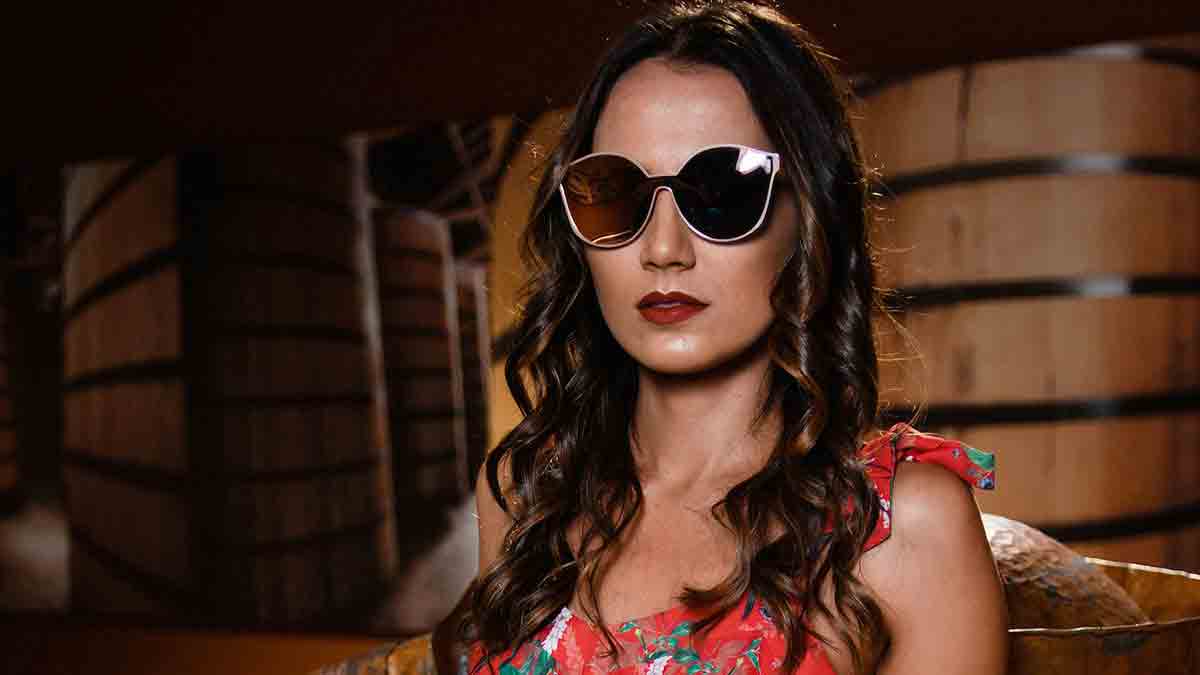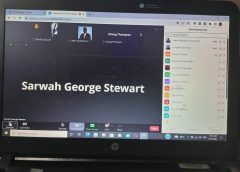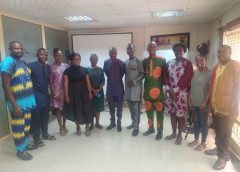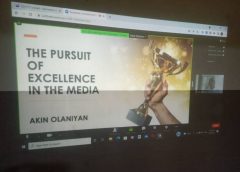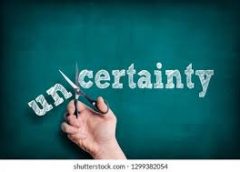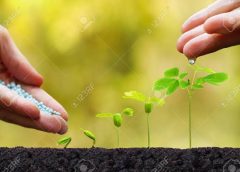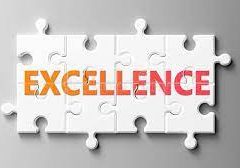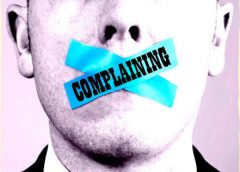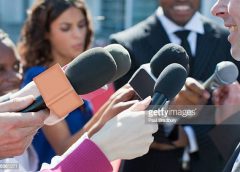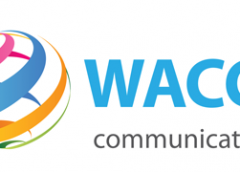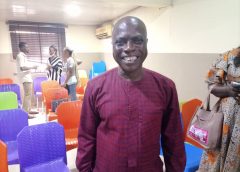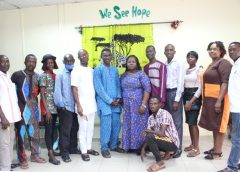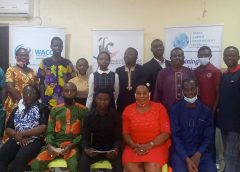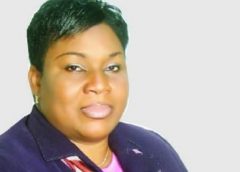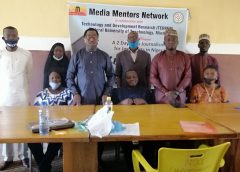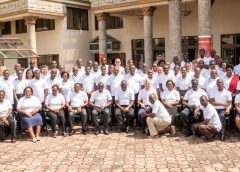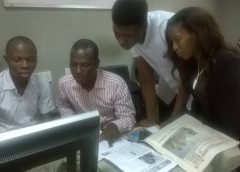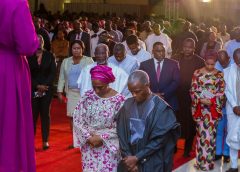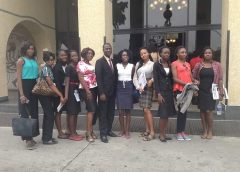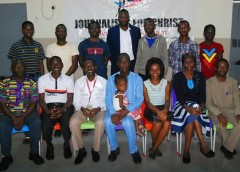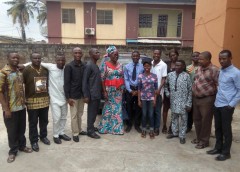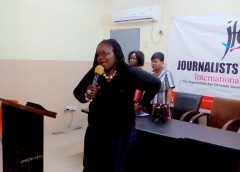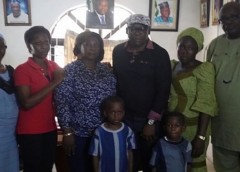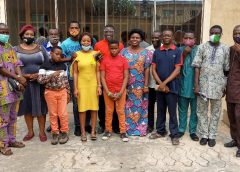
Report by Dayo Emmanuel and Oyinlola Awonuga
Journalists have been enjoined to think of humanity in their reporting.
The call was made at the September fellowship of Journalists for Christ (JFC) held on Saturday 19th in Lagos Lagos State.
The theme of the fellowship holding for the first time physically since February due to the Covid-19 restrictions was ‘Humanitarian Journalism’ which is a fallout of a recently concluded project on Internally Displaced Persons (IDPs) in Nigeria.
The project sponsored by the World Association for Christian Communication (WACC) and Otto Per Mille, Waldesian Church, Italy was focused on Managing Internal Displacements in Nigeria.
In his welcome charge, President of JFC, Mr. Lekan Otufodunrin encouraged journalists to be passionate about reporting issues especially as they affect any voiceless population. Reading from Mathew 25vs 34, Otufodunrin asked participants how journalists can be humanitarian in their reporting.
According to him, “There are people who are displaced, beyond IDPs there are so many issues in our reporting and we must capture those essences. Journalists need to get to a point they need to pray for their reports impact lives as they write.”
He noted that there are lots of issues that affect human welfare. “We need to know what we should be paying attention to and also know how we can ensure that people’s welfare can be taken care of,” he admonished.
In his presentation, one of the panellists, Mr. Sanmi Falobi noted that humanitarian journalism is both development and social journalism.
“Humanitarian journalism is about bringing to fore the things that government should do for the benefit of the voiceless. Journalists and government are supposed to work together. Journalists are part of the society and it is the responsibility of journalists to bring to the attention of the government how to better do what they are doing,” he noted.
Explaining further, he said, “Journalism should be for the truth so that when we are talking and writing, it is what we are standing for. We should hold the government accountable. What are the issues with the humanity of Nigeria? How do we imagine the kind of life IDPs are living?
“The humanitarian aspect is to use your own interest as humanity is concerned. How are we helping those who don’t have a voice? He asked, stating further that, “The concept of humanitarian journalism is to help the voiceless. We are in between the controller of the power and those who need the power. As journalists, we need to do a shift of power. We have the power to shift the power,” he said.
Falobi, the Program Manager at the International Press Centre, Lagos, also noted that “Humanitarian journalism is seeing the gaps in government. As humanitarian journalists, we have to draw the attention of the government to cogent issues in society. Our work is to go to the field and present the needs of those who can solve the problems.”
In his response, one of the participants, Mr. Wale Fatade who recalled several examples of humanitarian journalism he was involved in as a journalist with The Guardian newspaper, advised that journalists should see their profession as a calling.
“See the profession as a calling, and most importantly always remember what ‘pushed’ you into journalism. If you have spent 15 or 20 years in this profession, ask yourself who have you been able to help. It is expedient to know that the best change agent in life is an editor,” he said.
Fatade decried the current state of Nigerian educational sector as he also noted the over dependent of journalists on the government which he said cannot ensure objective reporting.
“When we depend on government agencies for our report, we won’t report appropriately. We must cut off that dependence. We need to turn the mirror to ourselves. We need to report ourselves too. Sometimes we are too elitist in our reportage,” Fatade said.
Mrs. Ugonma Cokey, Deputy Director, Voice of Nigeria, urged journalists to understand what humanitarian journalism requires and appy the right concept in their job.
Development journalist, Mrs. Funmi Falobi added that no matter what beat a journalist covers, there are development issues report.
Falobi who once covered the Lagos State Government House said, “Governments make policies, we should ask how the policies affect us as citizens. For instance, how does it affects men, women and children? Whatever we do as journalists must affect us in one way or the other as well.”
Pastor David Odunayo noted that journalists must be balanced in their reportage.
“We need to balance our reports; we must of course note the facts. We must also make sure humanitarian journalism must be in everything we do. We need to be involved. What people need to survive are just the little things.”
